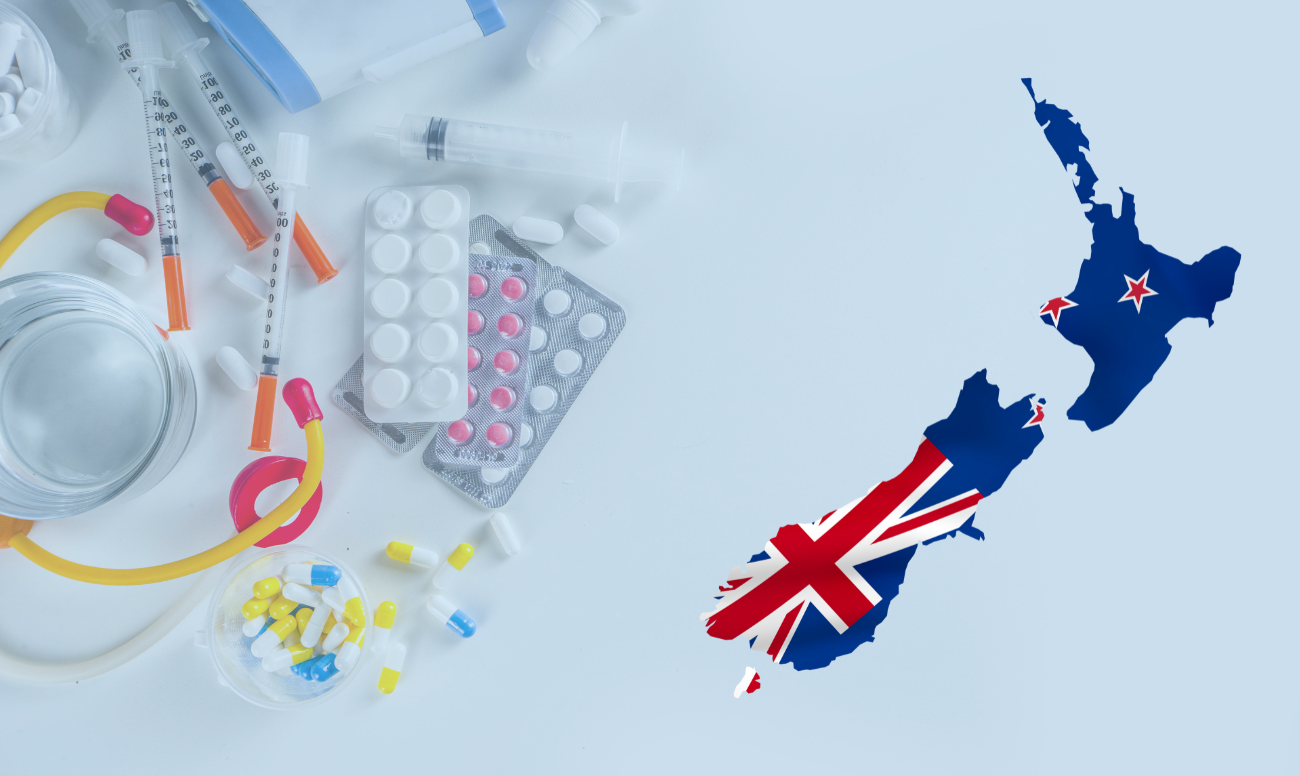
How To Import Medicines Into NZ For Named Patient Use: A Case Study
In this case study, we highlight the ongoing challenges with access to modern life-saving medicines in New Zealand and the status of Named Patient Imports in the country. Named patient imports are a lifeline for many patients when an affordable or effective treatment for their condition is not available in their country. This blog post highlights the ongoing challenges with access to life-saving medicines in NZ and how many patients rely on named patient supplies from other countries to support their treatment amidst these hurdles. Patients and healthcare providers in NZ must be aware of the latest provisions of New Zealand’s named patient program to avail its benefits under critical circumstances.
Ongoing Challenges With Access To Medicines In New Zealand
New Zealand lags far behind comparable countries in public funding of modern medicines. Here are 3 startling facts about challenges with access to medicines in the country –
- According to a study conducted by Medicines NZ, New Zealand ranks last in market access to modern medicines among the OECD countries, lagging far behind comparable nations like the UK, Canada, and Australia, and even behind smaller countries like Hungary, Estonia, Lithuania, Mexico and Latvia. Between 2010-2020, the country publicly funded only 10% of newly-launched cancer drugs, 11% of rare disease medicines, and no new medicines for diabetes, arthritis and mental health.
- Another study by the London School of Economics revealed that when compared to other high-income nations, New Zealand funds the least number of new cancer drugs despite similar approval criteria.
- On average, the country is twice as slow to publicly fund modern medicines as other comparable nations. This lack of coverage of modern medicines leaves patients suffering from life-threatening and debilitating disorders like cancer, diabetes, and rare diseases with limited treatment options, as a vast percentage of the population cannot afford these medicines without public funding.
These statistics are a cause of concern for both healthcare providers and patient advocates –
In a statement to NZ Herald, medical oncologist and senior lecturer in medicine at the University of Otago Dr Chris Jackson said: “New Zealand has traditionally been slower to fund most drugs than other countries”. As long as that remained the case, Dr Jakson said “people are missing out”.
Another quote from Medicines New Zealand chief executive Dr Graeme Jarvis said that “unnecessary” delay in funding proven modern medicines means patients were “forced to wait with uncertainty”.
Amidst poor coverage of various life-saving medicines in the country, patients have to resort to solutions like Named Patient Imports to procure medicines for their unmet needs.
Named Patient Import Of Medicines To New Zealand: A Solution Amidst Lack Of Promising Treatments
Given the dismal coverage of modern medicines in New Zealand, patients resort to named patient imports to procure life-saving drugs. Here are 5 key facts about the Named Patient Program in NZ amidst the approval of the new Therapeutic Products Act.
- Since 1981, the Medicines Act has permitted the import of unapproved medicines in NZ by healthcare providers to treat a named patient under their care, provided that no available treatment meets the needs of said patient.
- In 2022, the new Therapeutic Products Bill was proposed in the parliament, to replace the Medicines Act. The original wording of the bill implied that patients could no longer import affordable alternatives to authorized medicines by mail, even if they were expensive and not publicly funded.
- The bill received strong opposition from patients advocates and patients who had been importing affordable life-saving drugs as per the Medicines Act, given the poor coverage of new medicines in the country.
- The government acted upon this feedback and amended the bill to include more flexibilities for Named Patient Imports, and this revised bill was passed as the Therapeutic Products Act on 26th July, 2023. The new act allows healthcare practitioners to use unauthorized medicines as below –
“The special-case requirement is met if the health practitioner or veterinarian, exercising their professional judgement, is satisfied that—
(a) there is no medicine or medical device with a standard authorisation or provisional authorisation that—
(i) is suitable to meet the clinical needs of the patient (whether as an authorised indication or an off-label use); and
(ii) is immediately available or could be obtained within a reasonable period; and
(iii) is reasonably affordable to the patient or their whānau; and
(b) it is appropriate to carry on the activity with the medicine or device that does not have a standard authorisation or provisional authorisation.”
Based on the above, patients in NZ may continue to procure innovative or affordable alternatives to unfunded medicines as per the advice of their healthcare professionals.
- The Therapeutic Products Act will come into full effect by 1 September 2026. Between now and then, the Ministry of Health will prepare the rules and regulations to give the Act practical effect.
The Life-Saving Impact of Named Patient Supply To New Zealand: Real People, Real Stories
With a devastating Stage 4 Lung Cancer diagnosis, here is how Theresa from Gisborne, New Zealand managed to source affordable medicines for her treatment through named patient access.
Theresa, a resident of Gisborne, New Zealand was faced with a shattering Stage 4 Lung Cancer diagnosis in June 2022 and was given only 9 months to live. The FDA-approved treatment for her condition was not funded in NZ, and would cost her a whopping $10,000 per month. With the advice of her oncologist, she was able to source a generic version of her medicine “Tagrix” from another country, at a way more affordable $1000 per month. This was possible because of the provision for named patient imports in the Medicines Act.
While the generic medicine gave Theresa some positive results by thinning her cancer and extending her life, she was faced with another impediment when the new Therapeutic Products Bill was proposed in November 2022 to replace the Medicines Act of 1981. According to the original wording of this bill, patients would not have been able to import via mail affordable unapproved medicines when unfunded but authorized versions were available in NZ. Theresa braved this challenge head-first as well and started a petition opposing the clause, which was signed by more than 5000 citizens, including patients and patient advocates.
Theresa’s efforts paid off as the government amended the bill, continuing to support named patient imports for Theresa and thousands of patients like her across the country through the new Therapeutic Products Act. With this win, Theresa continues to battle cancer with affordable generic medicines. Theresa’s story is an example of how the named patient program offers treatment options that serve as rays of hope for patients fighting life-threatening diseases. Until New Zealand expands its public funding for modern medicines, named patient supplies are the key to survival for numerous patients.
Bottomline
This case study elucidates the significance of the named patient access program in New Zealand. The expanded access program in NZ has empowered patients for decades to access medicines that are not available in the country. While the nation needs to rework its regulatory processes to provide a wider range of modern medicines to its patients, named patient imports will continue to offer a ray of hope to underserved patient groups.
At Eudaico, we help patients across the globe access medicines unavailable in their country through compliant named patient imports. Contact us if you seek more information regarding our named patient supplies to New Zealand.


